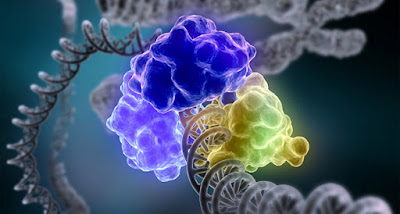Protein that expands life of yeast cells
Analysts found that the protein Gcn4 diminishes protein
synthesis and increase the life of yeast cells. Seeing how
singular genes influence life expectancy opens better approaches to control the
aging
procedure and the event of aging-related disorders. The consequences of this
examination have as of late been distributed in Nature Communications.
For around one hundred years it has been realized
that nutrient confinement and moderate stress can essentially drag out life.
The scientists have found how the translation
factor Gcn4, a protein that directs the regulation of
numerous genes, expands the life of yeast Saccharomyces cerevisiae. In different
pressure circumstances, the cells invigorate Gcn4 creation which prompts
decreased biosynthesis of new proteins and expanded yeast life expectancy.
Translation factor repress protein formation
It has for quite some time been realized that
protein synthesis - otherwise called translation - known as a critical part in
aging. Hindrance of protein synthesis, caused for instance by decrease nutrient
consumption, can positively affect the future of various life forms, for
example, yeast, flies, worms or fish. Lessening the ribosomes, the protein
processing plants of the cell, can likewise extensively broaden the life
expectancy of yeast cells. What these cell stresses have in like manner is that
they actuate the generation of Gcn4. In any case, how this protein advances
life span has stayed vague. In their examination, presented yeast cells to
various pressure conditions, estimated their life expectancy, protein
combination rates and Gcn4 articulation. The level of the Gcn4 protein was
decidedly related with the life span of yeast .
"In any case, we needed to comprehend why. We
have now appeared out of the blue that it is the transcriptional suppression of
genes that are critical for cell protein union by Gcn4 that appears to
represent its life expectancy expansion impact. As the translation machinery is
constraining, the energy-intensive creation of new proteins is general
hosed." From the yeast cell's perspective, this is advantage: This
empowers them to live around 40 percent longer than common.
Transcription factor is profoundly preserved in
numerous living beings
The transcription factor Gcn4 is moderated in more
than 50 unique living beings, including warm blooded animals, and it likely
assume a critical part in the aging of these living beings also.



Comments
Post a Comment